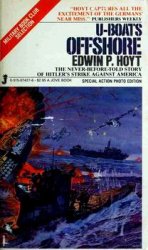The full year of fighting in 1915 produced a record of frustration and
disappointment for the Allied powers. In contrast, the Central Powers
fended oQ'one threat after another and drove forward in several direcfions.
New countries entered the conflict. Nonetheless, the year ended without
having moved the war closer to resolution.
Allied Failures in 1915: The Western Front, Gallipoli,
and the Invasion of Serbia
While France failed in its attacks on the western front, the British, losing
there as well, were humiliated at Gallipoli. The western front remained
primarily a French responsibility as Britain busied itself building up a large
army. General Joffre hurled the vast French forces against the German lines
in a series of offensives from March until September. The result was a
deadlock marked by long, discouraging casualty lists. Whether striking
along the northern portion of the front in Artois or further southward in
Champagne, the French could do litde more than dent the German line.
What ground they took in the face of potent German defenses often fell back
into enemy hands following violent German counterattacks.
The experience for the British on the western front was the same,
although on a smaller scale. From the spring to the fall of 1 9 15, General Sir
John French's divisions conducted a series of offensives. No combination
of artillery or gas (the latter was introduced by both the Germans and the
British on the western front this year) opened the way for the infantry to
take—and to keep—much ground. The final major assault, at Loos in
September, was a particularly bloody affair due to the ineptitude of the
British high command as well as to the success of the German counteroffensives.
In the aftermath, French was forced to relinquish his command to
General Sir Douglas Haig.
Britain's humiliation at Loos was compounded by its failure to seize the
Turkish Straits and capture the Turkish capital, Constantinople. Some of the
more imaginative members of the government, like Winston Churchill, the
navy minister, advocated using Britain's sea power to gain a decisive victory
away from the western front. But the effort was marked by muddled
planning and poor execution. Starting as a failed naval attack on the forts
defending the entrance to the Straits in March 1915, it evolved into an
amphibious operation in which British, Australian, and New Zealand troops
landed on the Gallipoli peninsula to seize Turkish defenses by land attack.
The highly vaunted British navy, undefeated for more than a century,
failed in its attack. And, in another reversal of the trends of the nineteenth
century, Britain's land forces could not overcome the army of a non-Western
power, Ottoman Turkey. By the close of the year, the forces at Gallipoli had
to be evacuated.
In the Balkans, Serbia was nearly driven out of the war in the fall.
Attacked from the north by German and Austrian forces, and from the east
by Bulgaria, which joined the war in October in order to help overwhelm
the Serbs, the kingdom of Serbia was overrun. Only by a dramatic march
westward through Albania to the Adriatic Sea and the assistance of the
French navy did a remnant of the Serbian army survive. Like the story at
Gallipoli, the Serbian campaign was a disaster limited only by a skilled
naval evacuation of the defeated forces.




 World History
World History

![Road to Huertgen Forest In Hell [Illustrated Edition]](/uploads/posts/2015-05/1432477693_1428700369_00344902_medium.jpeg)







